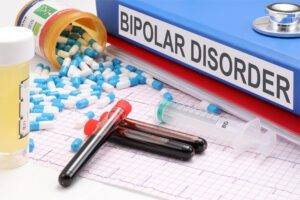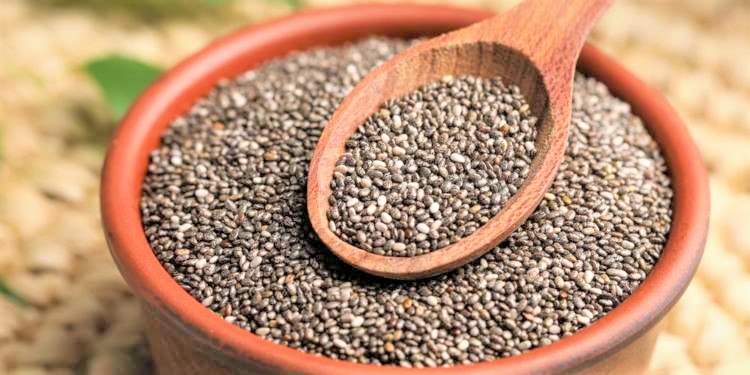OVERVIEW
Welcome to a comprehensive guide on Bipolar Disorder! In this article, we will delve into the different types of bipolar disorder, explore its potential causes, identify common symptoms to watch for, discuss various treatment approaches, and highlight the importance of dietary management in managing this condition effectively. Whether you or a loved one are affected by bipolar disorder or you’re seeking to expand your knowledge on the subject, we’ve got you covered with valuable insights and practical advice. Let’s embark on a journey to better understand and navigate the complexities of bipolar disorder to lead a balanced and fulfilling life.
Table of Contents

We all have ups and down in our life, these ups and down may be severe with bipolar disorder. It can cause serious shifts in mood (mania or hypomania), thinking, behavior’s. The cycle of bipolar disorder last for weeks or months. The mood changes of bipolar disorder are so intense that they can interfere with your job, school performance, social life, can damage your relationship, and ability to function of daily life. Although bipolar disorder is a lifelong condition, you can manage your mood swings by following a treatment.
There are two types of Bipolar Disorder
Bipolar-I Disorder
It is diagnosed when you are suffering from manic episodes. Manic episode is a condition of abnormal elevated period in which a lot of changes in your mood, in your daily activities. Sometimes it can trigger a break from reality(psychosis). Psychosis is characterized by the presence of delusions. It is said that fifty percent of the bipolar disorder patients develop psychotic symptoms during lifetimes. Psychotic symptoms are more frequent in bipolar than in unipolar depression.
Bipolar-II Disorder
It is defined as one episode of hypomania and one episode of major depression. Hypomania is less severe than mania, but it can affect the quality of life and can damaged personal life. Hypomania is not associated with psychosis.
Causes
- Genetics:If one parent has the bipolar disorder, there is a 10 % chance of getting the disorder by their child. And if both of the parents have the disorder, then there is a 40 to 50% chances to get the disorder.
- Environmental: Environmental stress are externa, causes of this stress includes weather, pollution, war, crime, temperature, smoking, hazardous working place, poverty.
Symptoms
- Self-doubt
- Loss of interest in everyday activities
- Uncontrollable thoughts running in mind
- Feeling stuck about everything
- Loss of concentration
- Feeling of frustration and irritable during the whole day
- Lack of judgement
- Unrealistic beliefs in one’s capabilities
- Feeling of hopeless
- Loosing sense of reality, which can lead to psychosis
- Rapid speech, jumping from one idea to another
- Restlessness
- Change in appetite, unable to eat properly
- Thoughts of suicide
Treatment
Treatment is available for both bipolar i and ii, usually lifelong and often involves a combination of medication, psychotherapy, counselling, lifestyle remedies. People who have bipolar disorder often see improvement in symptoms when they establish daily routines for sleep, exercise, diet. If you notice symptoms of bipolar in yourself, suicidal thoughts and behavior’s are common among people with bipolar disorder. It is important to seek medical care immediately. Treatment enables many suffered people to work, study. However, when treatment helps a person feel better, they may stop taking their medication. Then the symptoms can return. Sometimes it can take long time to find suitable treatment, as individuals symptoms vary widely.
- Following a varied diet
- Regular exercise
- Good sleep pattern
- Engage the help of family members, relatives and neighbors
- Follow the doctors’ instructions properly
- Continue taking treatment unless the doctor says to stop
- Some of the drug’s medicines are antidepressants, second generation antipsychotics
Diet
Most of us carry the heavy burden of this problem, to reduce this burden we depend on medicines for stress, anxiety, depression and sleep issues. These short-term solutions are harmful in the long term.
Imaging unburdening ourselves and becoming a free soul. Sometimes it is possible completely overcome the need and dependence on medicines. The body and mind have a tremendous capacity to heal themselves if we focus on the root causes.
The root causes are energy blockage at physical emotional and spiritual levels. Our breath is the master key to your physical and emotional health, so you need to focus on your balanced diet. Making a few changes to your diet pattern is a way to help bipolar disorder. The right choice of food may make you feel better.
Food and Drinks should be Avoid
- Alcohol
- Caffeine
- Sugar
- Salt
- Saturated fats (this fat is found in animal-based foods, like butter, cheese, coconut oil, poultry, pork, ice cream, chips, cookies).
- Some foods don’t pair with a medication (manoamine oxidase inhibitors) avoid tyramine. Tyramine is found in aged cheese, processed and smoked meats, dry fruits, soybeans.
Food and Drinks should be Allowed
- Selenium rich foods (sardines, ham, tuna, shrimp
- Probiotic
- Anti- inflammatory foods (fresh fruits, vegetables, nuts, seeds, grains, seafoods
- Whole grains (barley, brown rice, whole grain bread, oatmeal, millet, oatmeal, quinoa.
- Omega 3 fatty acids rich foods (sardines, salmon, eggs, walnuts, chia seeds)
- Foods’s rich in magnesium and tryptophan (milk, eggs, chicken, tofu, oats, almonds, spinach, pumpkin seeds, lentils, cashews).
Conclusion
In conclusion, understanding and managing bipolar disorder is crucial for individuals and their loved ones who may be affected by this challenging condition. By exploring the different types of bipolar disorder, its potential causes, common symptoms, and various treatment options, we can gain valuable insights into its complexities.
Bipolar-I Disorder, characterized by manic episodes, and Bipolar-II Disorder, featuring episodes of hypomania and major depression, present distinct challenges, but both can be effectively managed with the right approach.
Recognizing the symptoms and seeking timely medical care is vital for a successful treatment journey. With a combination of medication, psychotherapy, counseling, and lifestyle adjustments, individuals with bipolar disorder can experience significant improvement in their symptoms.
Diet plays a crucial role in managing bipolar disorder, and making informed food choices can positively impact one’s overall well-being. Avoiding certain foods and drinks while incorporating selenium-rich options, probiotics, anti-inflammatory foods, whole grains, and those rich in omega-3 fatty acids, magnesium, and tryptophan can support the management of bipolar disorder symptoms.
Remember, bipolar disorder is a lifelong condition, but with proper care and support, individuals can lead fulfilling lives. Establishing routines, adhering to treatment plans, and maintaining a balanced diet can make a significant difference in managing mood swings and improving overall quality of life.
By equipping ourselves with knowledge and embracing a holistic approach to managing bipolar disorder, we can support those affected and create a more understanding and compassionate environment for everyone. Let us continue to learn, support, and empower each other in the journey towards balanced mental health and well-being.
if want to Understand Depression: Symptoms, Causes, Types, Treatment, and Diet for Effective Management read the article Click here


